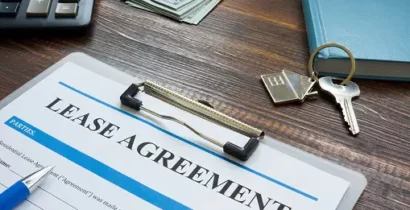Navigating Rental Regulations: Landlord Legal Responsibilities
Renting out property can be a rewarding endeavor, but it also comes with a set of legal responsibilities that landlords must navigate. Comprehending and adhering to these regulations is not only essential for a smooth landlord-tenant relationship but also for avoiding potential legal pitfalls. In this comprehensive guide, we’ll delve into the core legal responsibilities that landlords need to be well-versed in to ensure a successful and compliant rental business.
1. Fair Housing Laws: Ensuring Equal Treatment One of the fundamental pillars of being a responsible landlord is adhering to fair housing laws. These laws prohibit discrimination based on factors such as race, religion, gender, disability, and more. It’s crucial to treat all applicants and tenants equally, providing a level playing field and fostering an inclusive environment.
2. Lease Agreements: The Foundation of the Rental Relationship Crafting a clear and comprehensive lease agreement is paramount. This legally binding document outlines the terms and conditions of the rental arrangement. It covers critical aspects like rent amount, payment deadlines, security deposits, maintenance responsibilities, and rules governing pets and smoking.
3. Security Deposits: Transparency and Accountability Security deposits play a pivotal role in protecting both landlords and tenants. Abiding by local regulations, landlords must collect, manage, and return security deposits fairly. Providing tenants with a written statement detailing the property’s condition before move-in helps prevent disputes down the line.
4. Repairs and Maintenance: Ensuring Habitability Maintaining the property’s habitability is a legal obligation that falls squarely on landlords’ shoulders. Promptly addressing repair requests, ensuring functional utilities, and keeping the property in good condition are all part of this responsibility.
5. Safety Standards: Protecting Tenants’ Well-Being Upholding safety standards is non-negotiable. Landlords must adhere to building codes and safety regulations to provide tenants with a secure environment. This encompasses fire safety measures, smoke detectors, proper locks, and more.
6. Privacy Rights: Balancing Access and Respect Tenants’ privacy rights are legally protected. Landlords must provide adequate notice before entering the rental property for non-emergency repairs, inspections, or showings. Respecting privacy fosters trust and a positive relationship.
7. Eviction Procedures: Following Legal Channels In unfortunate situations where eviction becomes necessary, landlords must adhere to proper eviction procedures dictated by local laws. Following the correct steps and timeline is vital to avoid legal consequences.
8. Tenant Disputes: Handling Conflicts Professionally Conflicts are inevitable, but they should be managed professionally and within legal frameworks. Open communication, mediation, and, if needed, legal intervention can help resolve disputes amicably.
9. Health and Sanitation: Providing Safe Living Conditions Ensuring a healthy living environment is paramount. Landlords are obligated to maintain health and sanitation standards, including proper waste disposal and pest control.
10. Lease Renewal and Termination: Honoring Commitments Renewing or terminating leases must be done in compliance with legal guidelines. Providing proper notice and adhering to local regulations is crucial in these processes.
11. Lead-Based Paint Regulations: Ensuring Safety If your property was built before 1978, federal regulations regarding lead-based paint come into play. Adherence to these regulations is crucial for tenant safety, including proper disclosure and maintaining safe paint conditions.
12. Rent Control and Increases: Knowing Local Laws Local rent control laws and regulations on rent increases vary widely. Landlords must understand and abide by these rules to avoid legal complications.
13. Licensing and Permits: Complying with Local Requirements Checking for any necessary rental property licenses or permits in your locality is essential. Complying with these requirements avoids potential fines and legal issues.
Navigating rental regulations demands diligence and a deep understanding of the legal landscape. Staying informed and seeking legal advice when necessary ensures that you maintain a thriving rental business while providing tenants with a safe and well-managed living environment. By embracing your legal responsibilities, you’re not only fostering positive landlord-tenant relationships but also safeguarding your investment for the long term.



